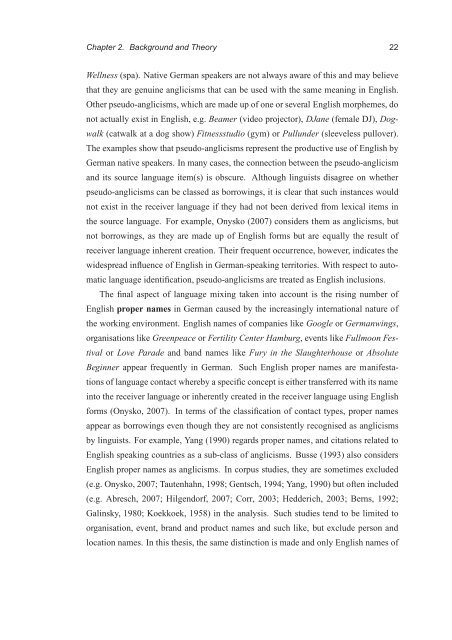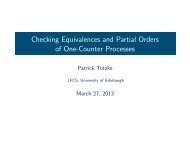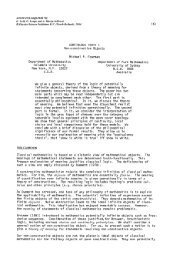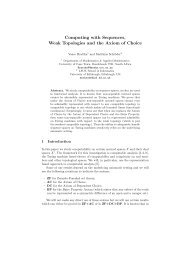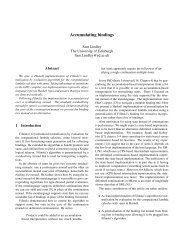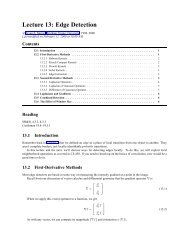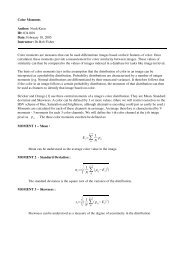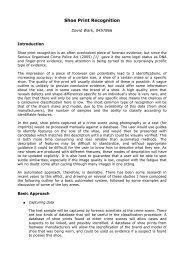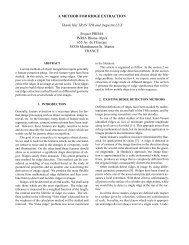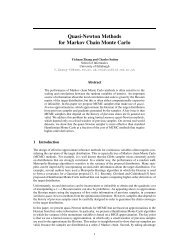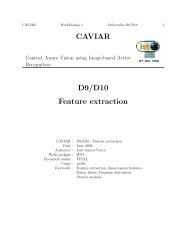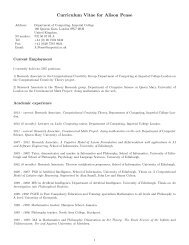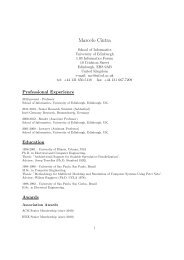PhD thesis - School of Informatics - University of Edinburgh
PhD thesis - School of Informatics - University of Edinburgh
PhD thesis - School of Informatics - University of Edinburgh
Create successful ePaper yourself
Turn your PDF publications into a flip-book with our unique Google optimized e-Paper software.
Chapter 2. Background and Theory 22<br />
Wellness (spa). Native German speakers are not always aware <strong>of</strong> this and may believe<br />
that they are genuine anglicisms that can be used with the same meaning in English.<br />
Other pseudo-anglicisms, which are made up <strong>of</strong> one or several English morphemes, do<br />
not actually exist in English, e.g. Beamer (video projector), DJane (female DJ), Dog-<br />
walk (catwalk at a dog show) Fitnessstudio (gym) or Pullunder (sleeveless pullover).<br />
The examples show that pseudo-anglicisms represent the productive use <strong>of</strong> English by<br />
German native speakers. In many cases, the connection between the pseudo-anglicism<br />
and its source language item(s) is obscure. Although linguists disagree on whether<br />
pseudo-anglicisms can be classed as borrowings, it is clear that such instances would<br />
not exist in the receiver language if they had not been derived from lexical items in<br />
the source language. For example, Onysko (2007) considers them as anglicisms, but<br />
not borrowings, as they are made up <strong>of</strong> English forms but are equally the result <strong>of</strong><br />
receiver language inherent creation. Their frequent occurrence, however, indicates the<br />
widespread influence <strong>of</strong> English in German-speaking territories. With respect to auto-<br />
matic language identification, pseudo-anglicisms are treated as English inclusions.<br />
The final aspect <strong>of</strong> language mixing taken into account is the rising number <strong>of</strong><br />
English proper names in German caused by the increasingly international nature <strong>of</strong><br />
the working environment. English names <strong>of</strong> companies like Google or Germanwings,<br />
organisations like Greenpeace or Fertility Center Hamburg, events like Fullmoon Fes-<br />
tival or Love Parade and band names like Fury in the Slaughterhouse or Absolute<br />
Beginner appear frequently in German. Such English proper names are manifesta-<br />
tions <strong>of</strong> language contact whereby a specific concept is either transferred with its name<br />
into the receiver language or inherently created in the receiver language using English<br />
forms (Onysko, 2007). In terms <strong>of</strong> the classification <strong>of</strong> contact types, proper names<br />
appear as borrowings even though they are not consistently recognised as anglicisms<br />
by linguists. For example, Yang (1990) regards proper names, and citations related to<br />
English speaking countries as a sub-class <strong>of</strong> anglicisms. Busse (1993) also considers<br />
English proper names as anglicisms. In corpus studies, they are sometimes excluded<br />
(e.g. Onysko, 2007; Tautenhahn, 1998; Gentsch, 1994; Yang, 1990) but <strong>of</strong>ten included<br />
(e.g. Abresch, 2007; Hilgendorf, 2007; Corr, 2003; Hedderich, 2003; Berns, 1992;<br />
Galinsky, 1980; Koekkoek, 1958) in the analysis. Such studies tend to be limited to<br />
organisation, event, brand and product names and such like, but exclude person and<br />
location names. In this <strong>thesis</strong>, the same distinction is made and only English names <strong>of</strong>


